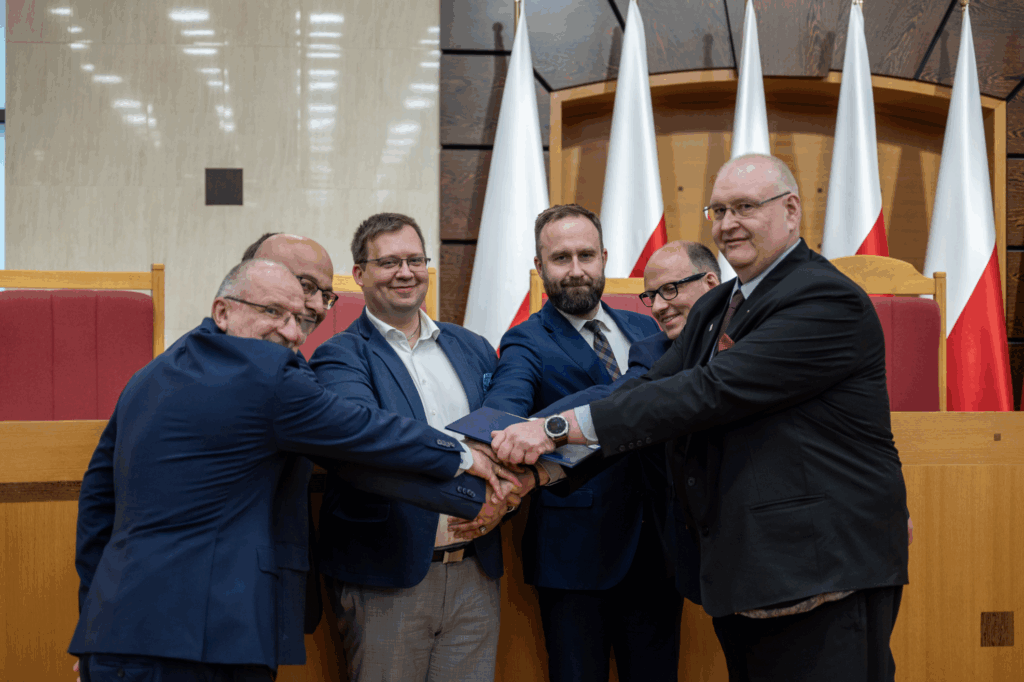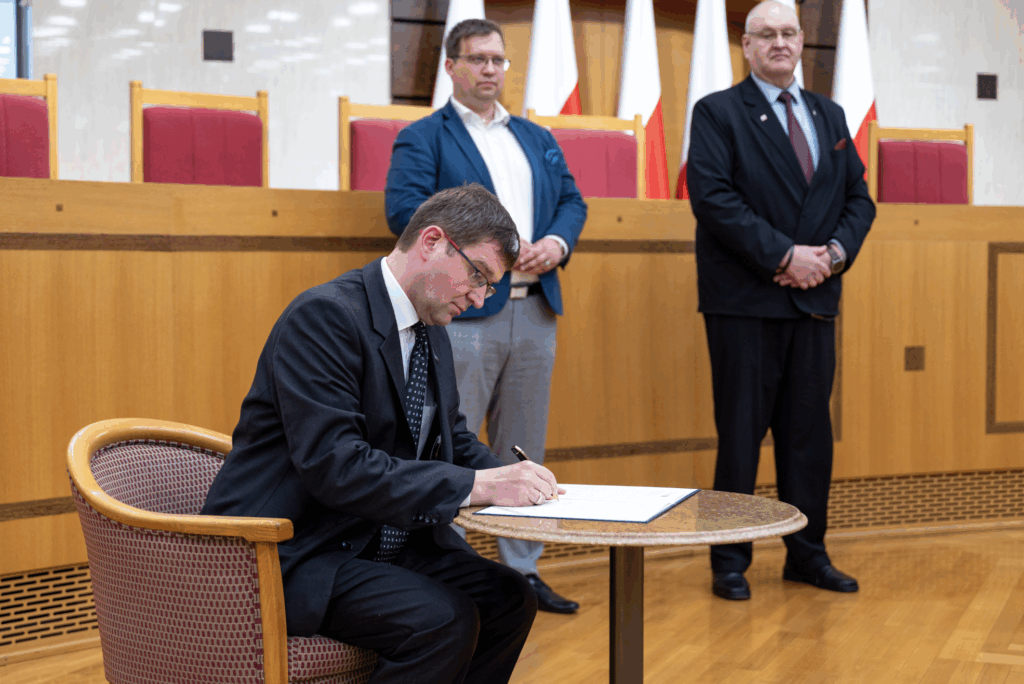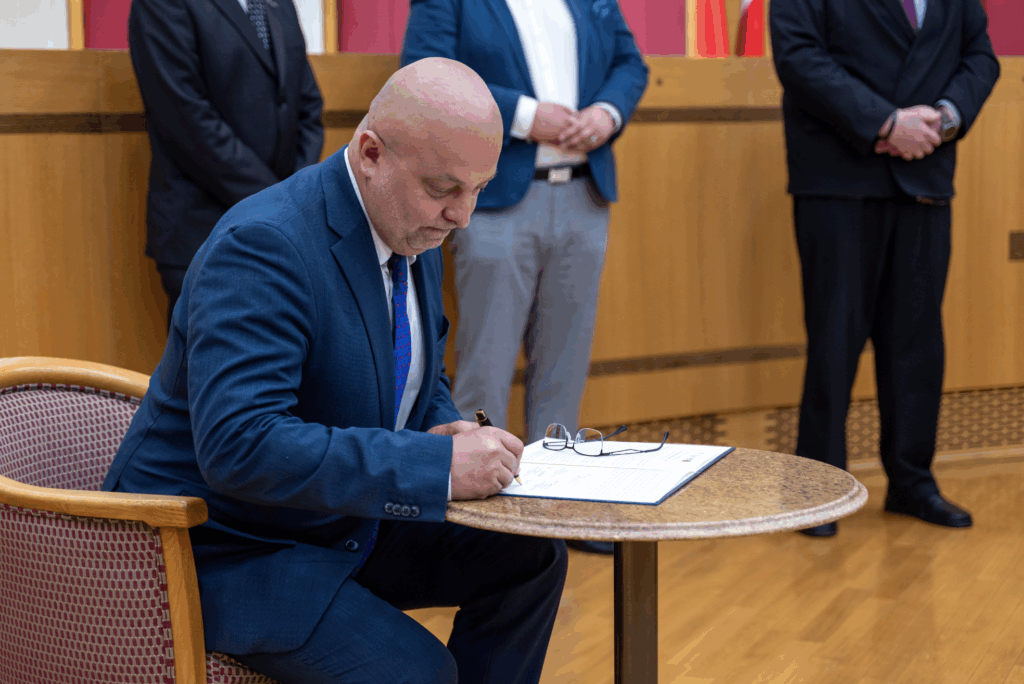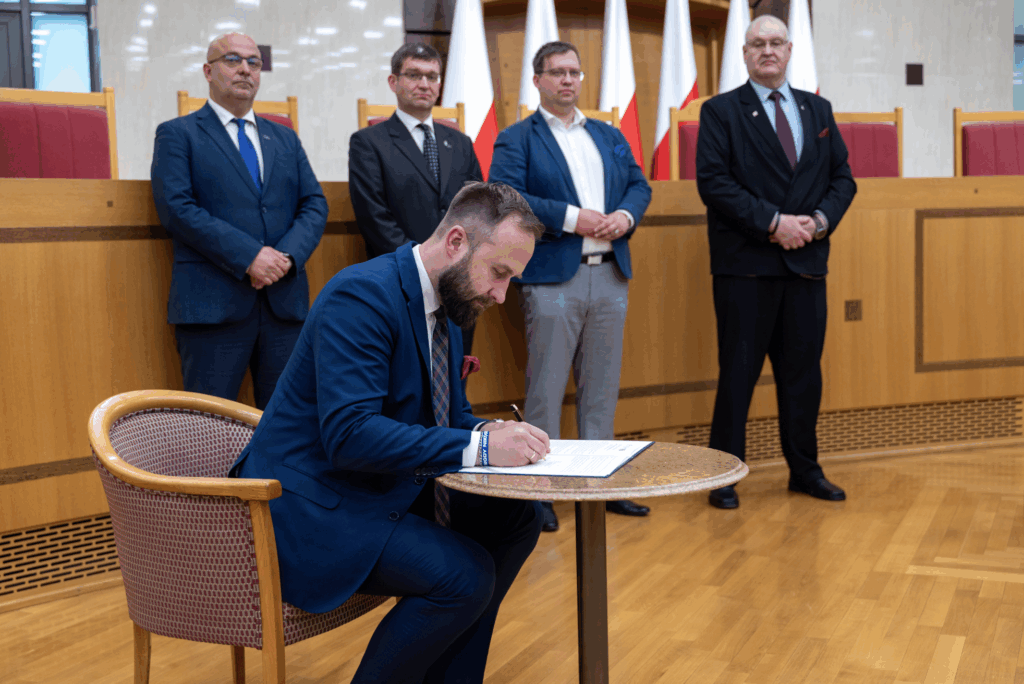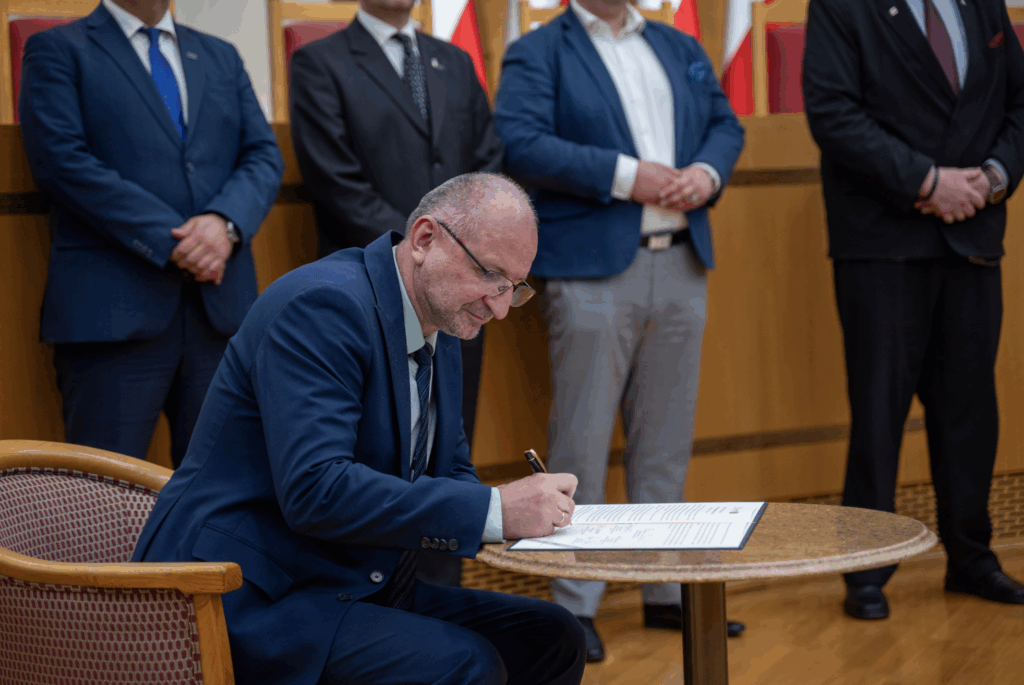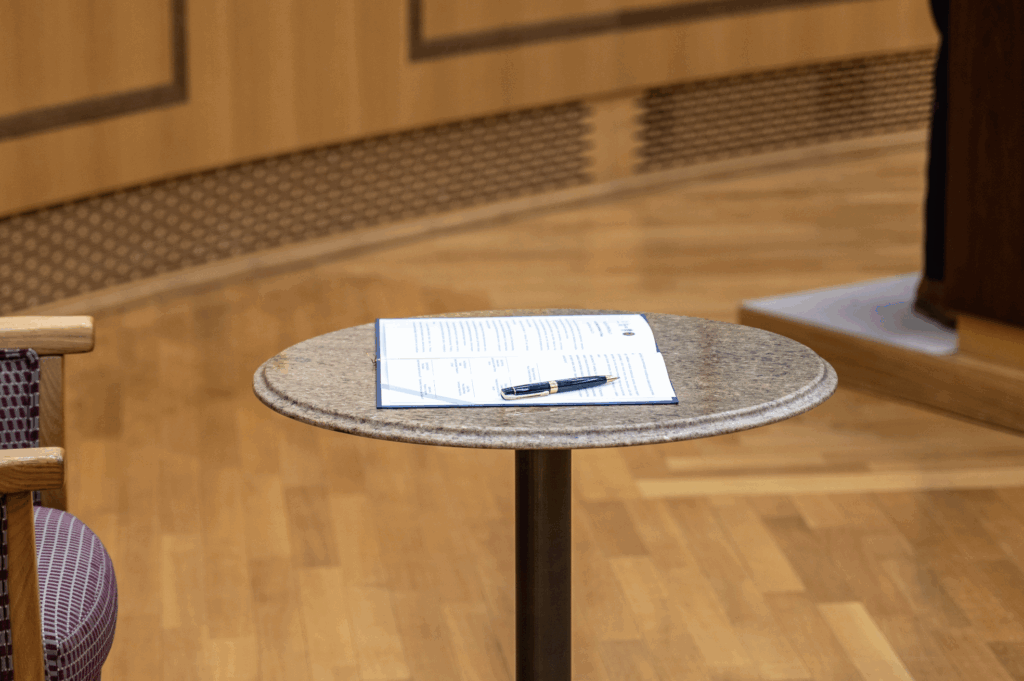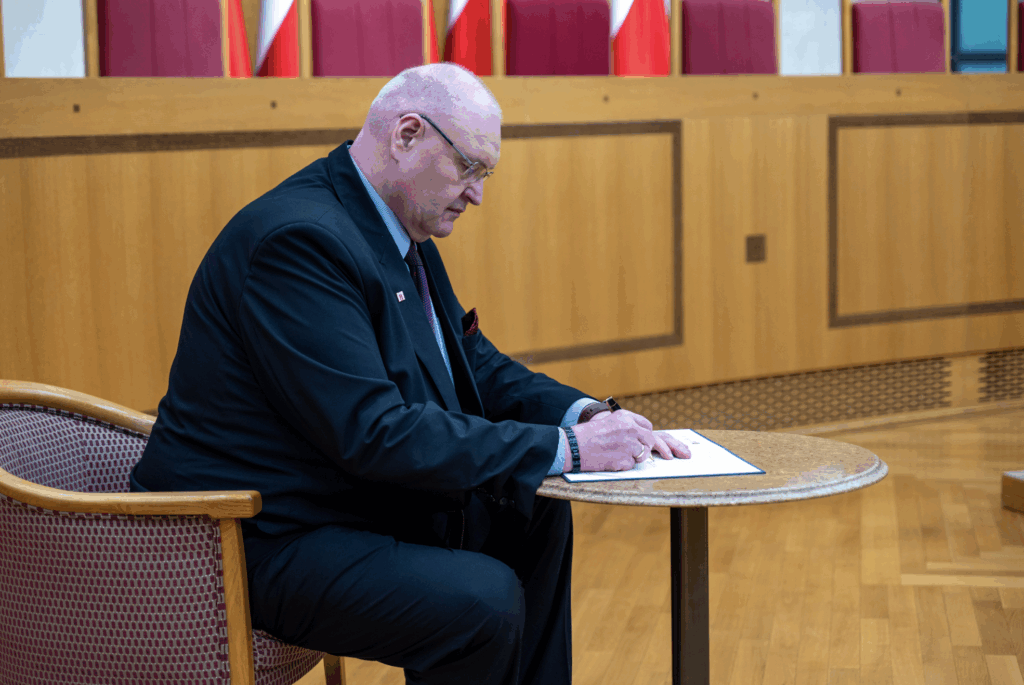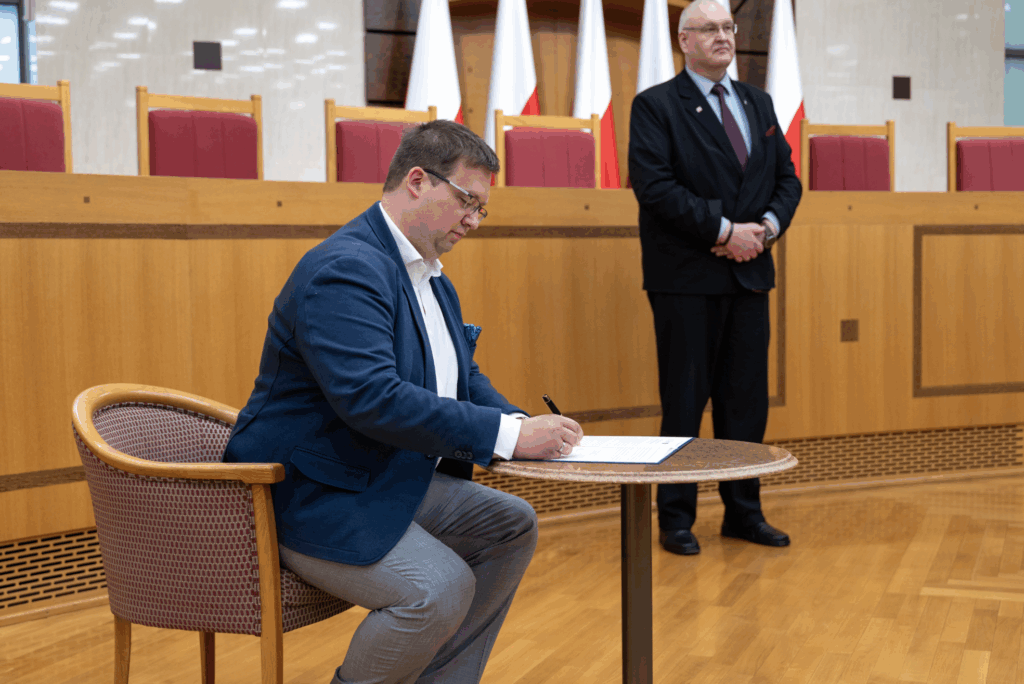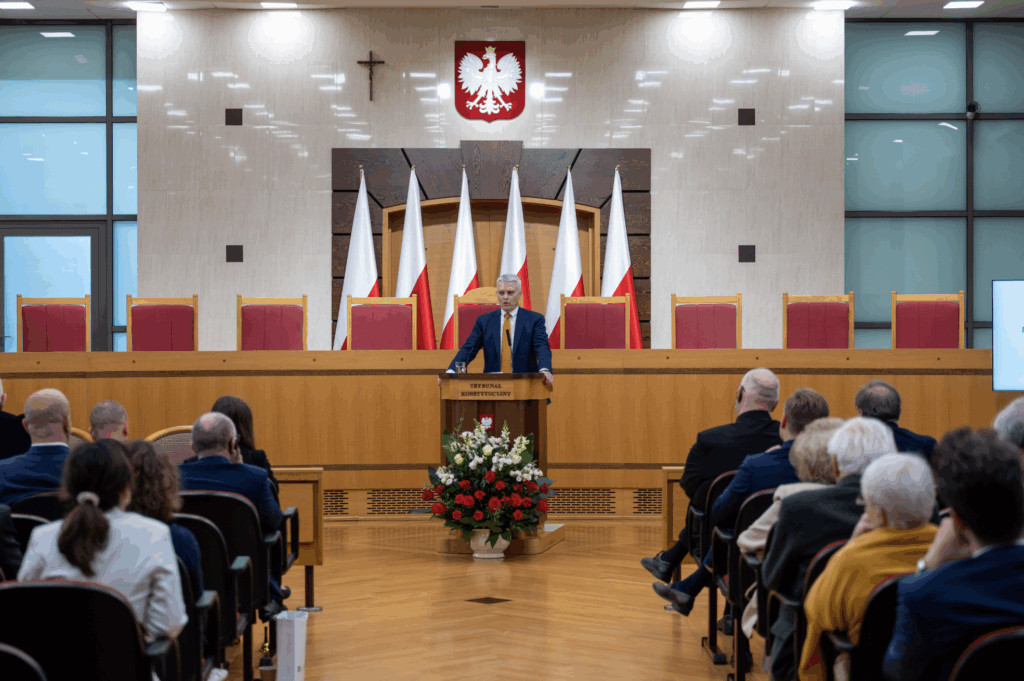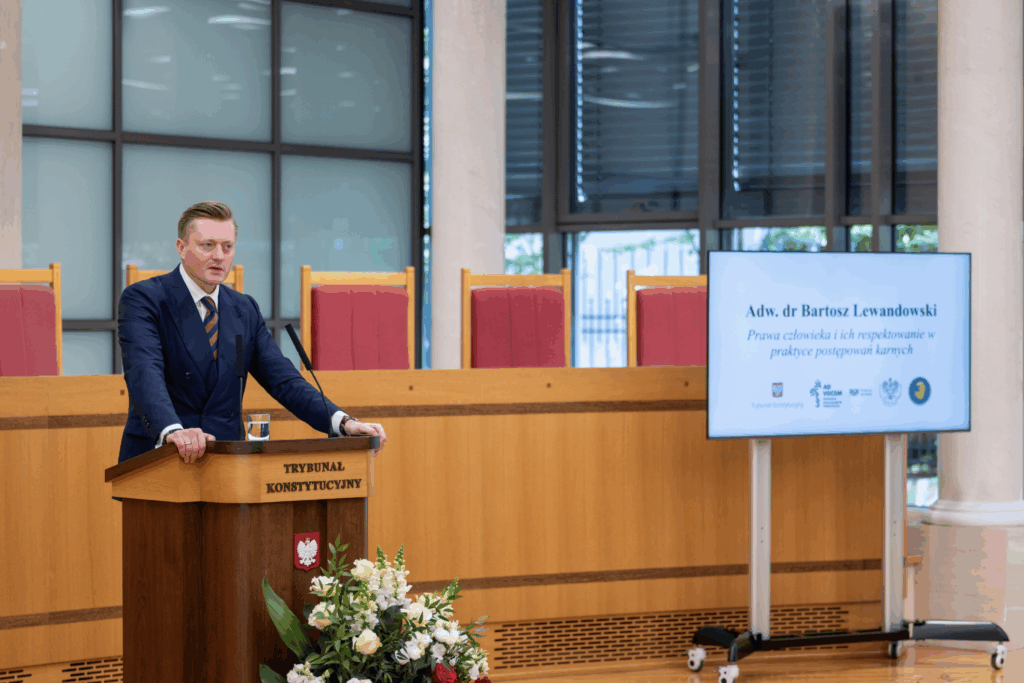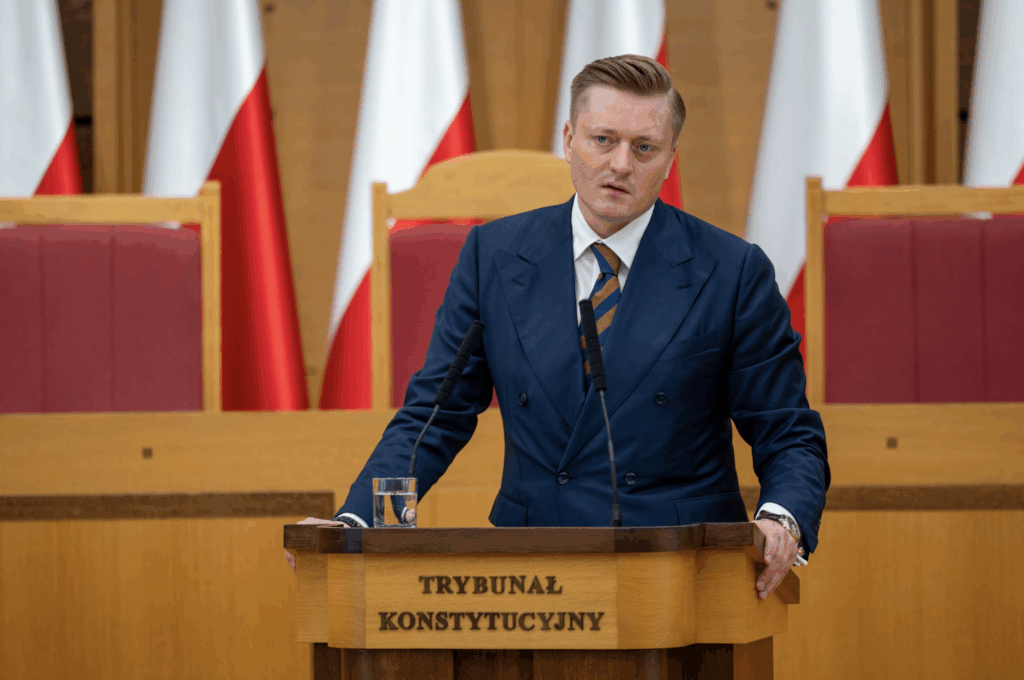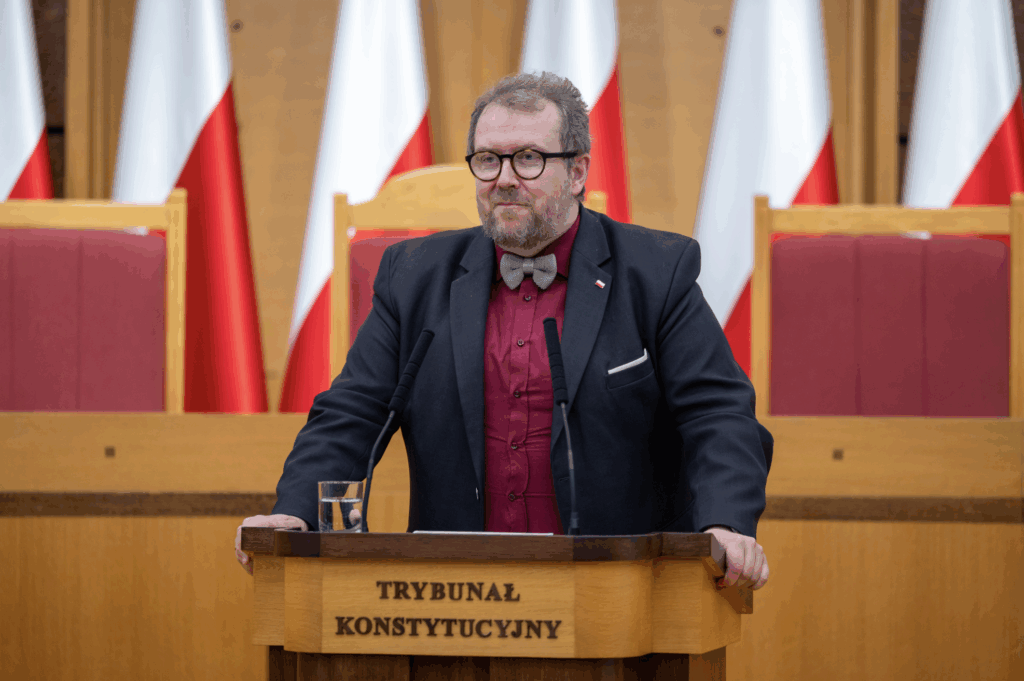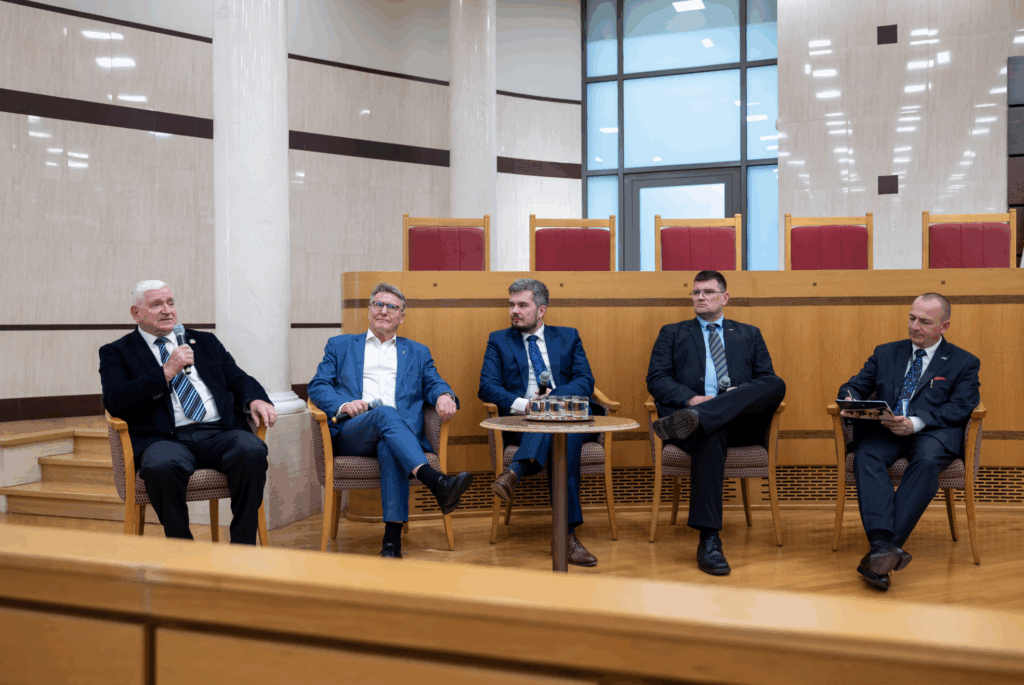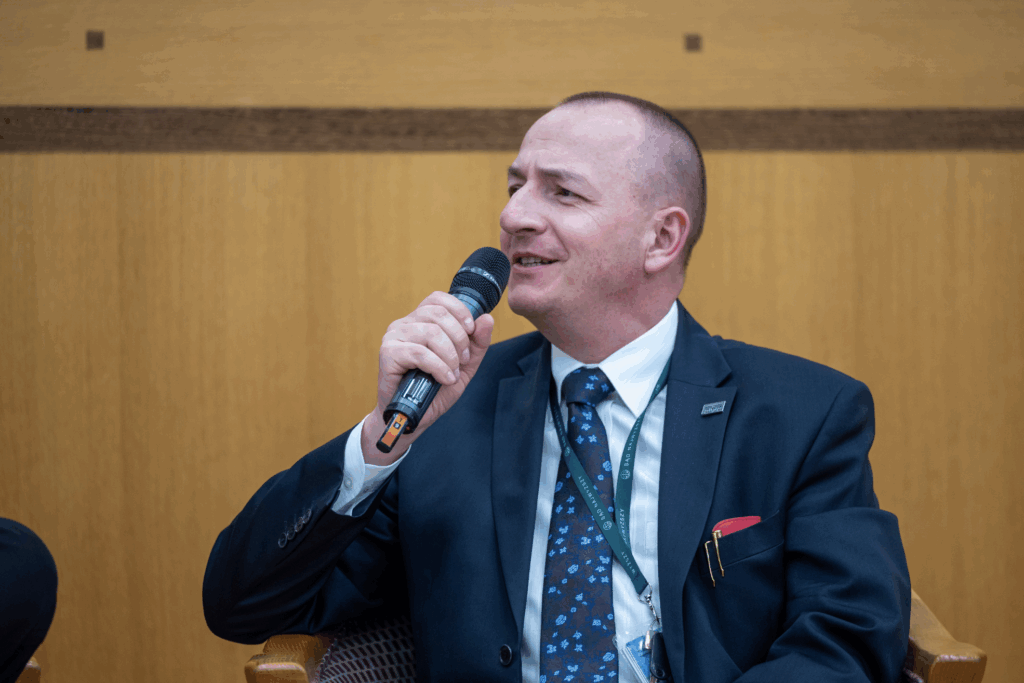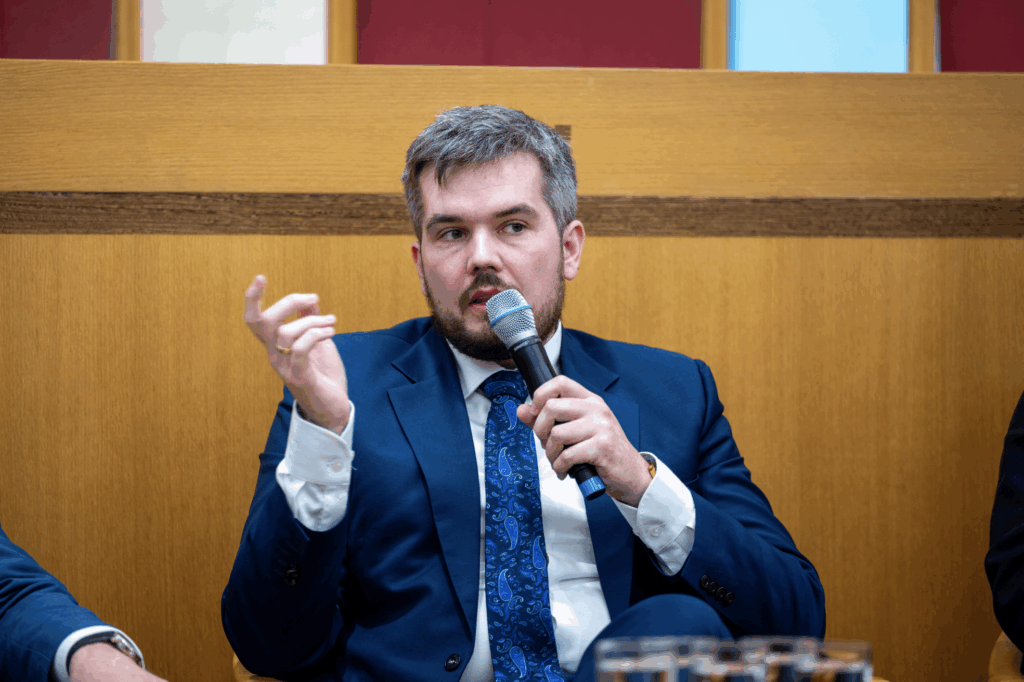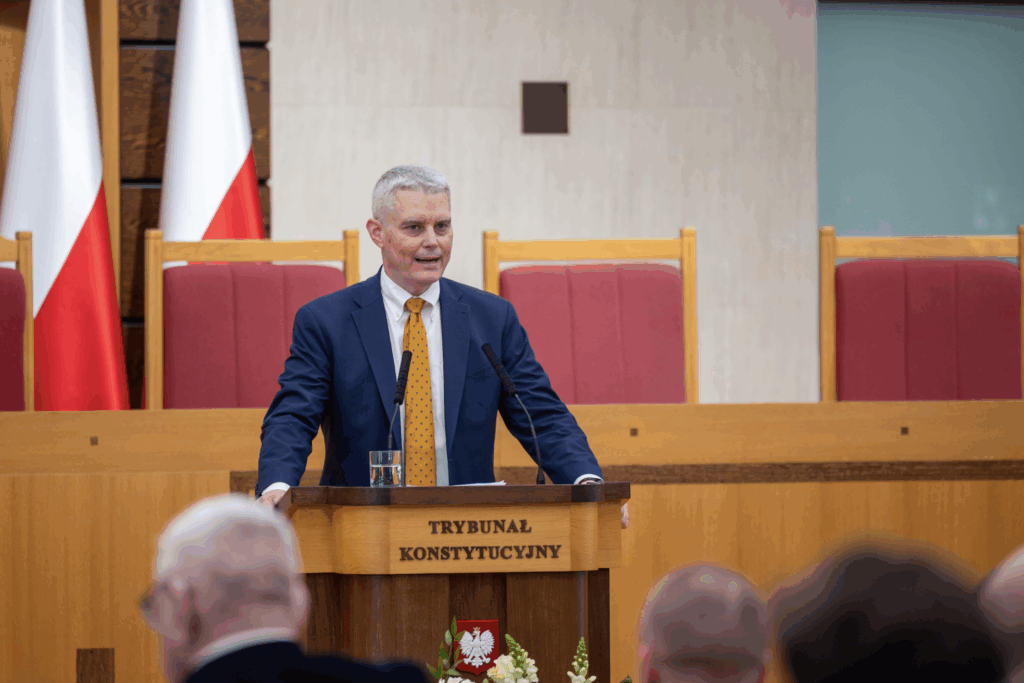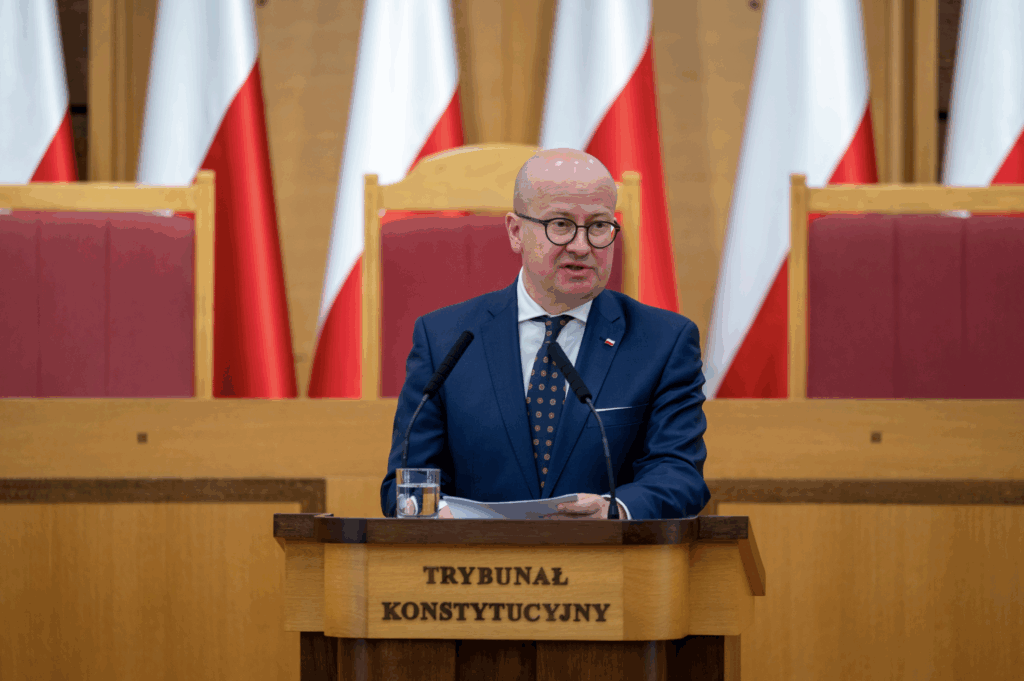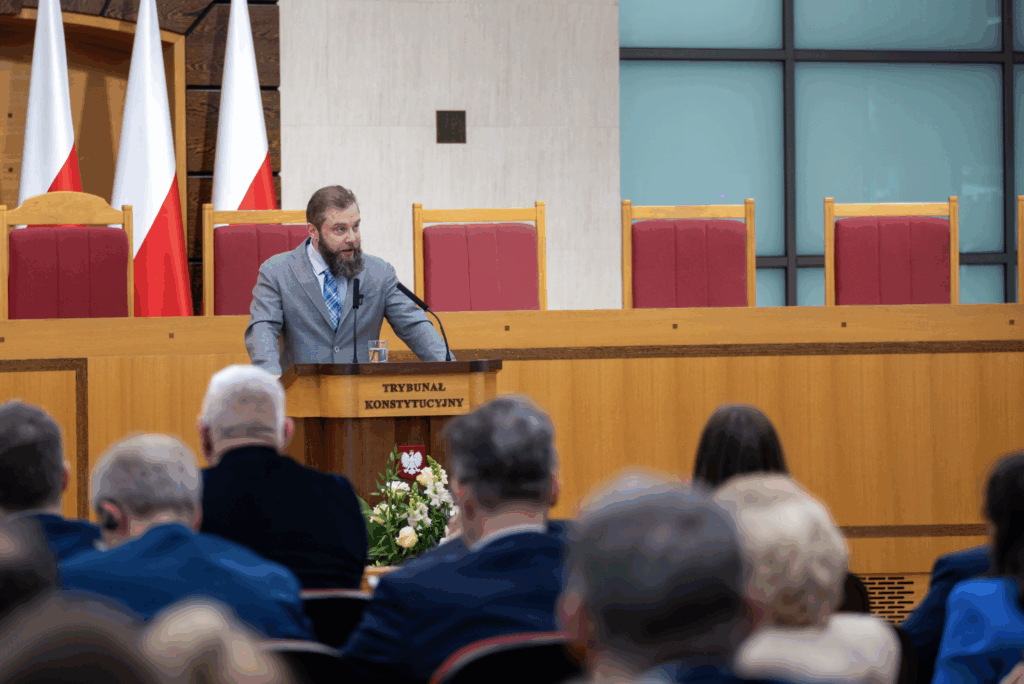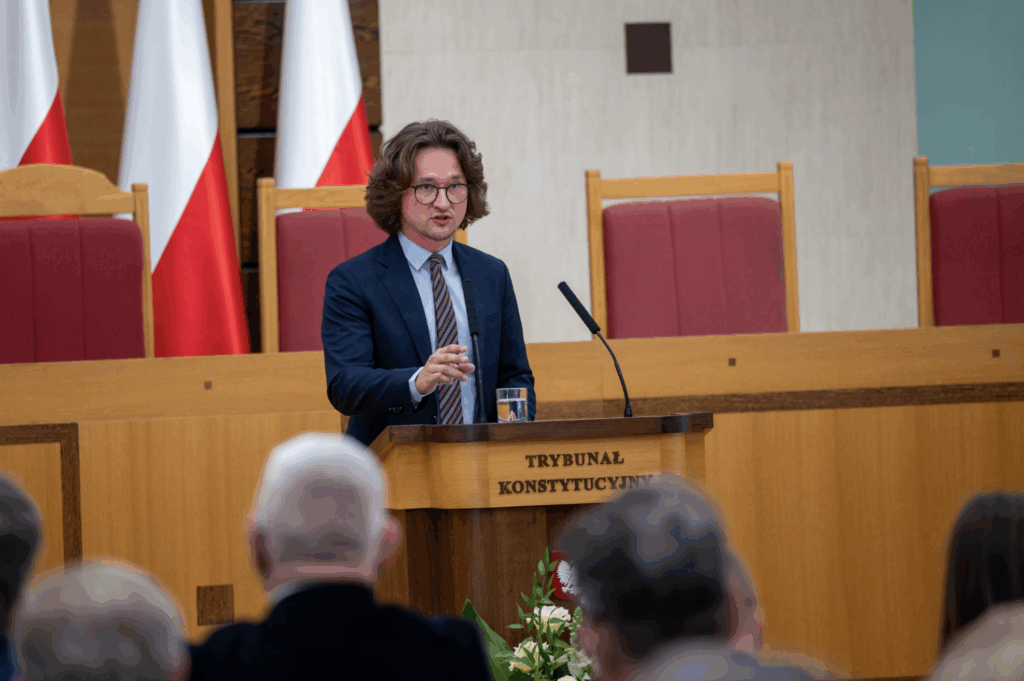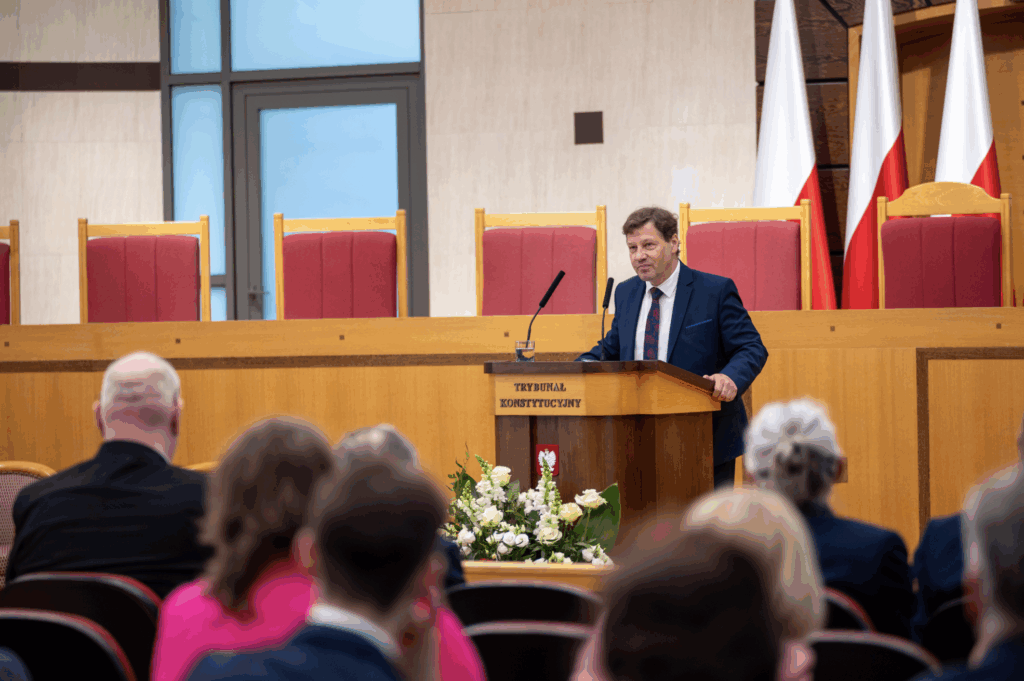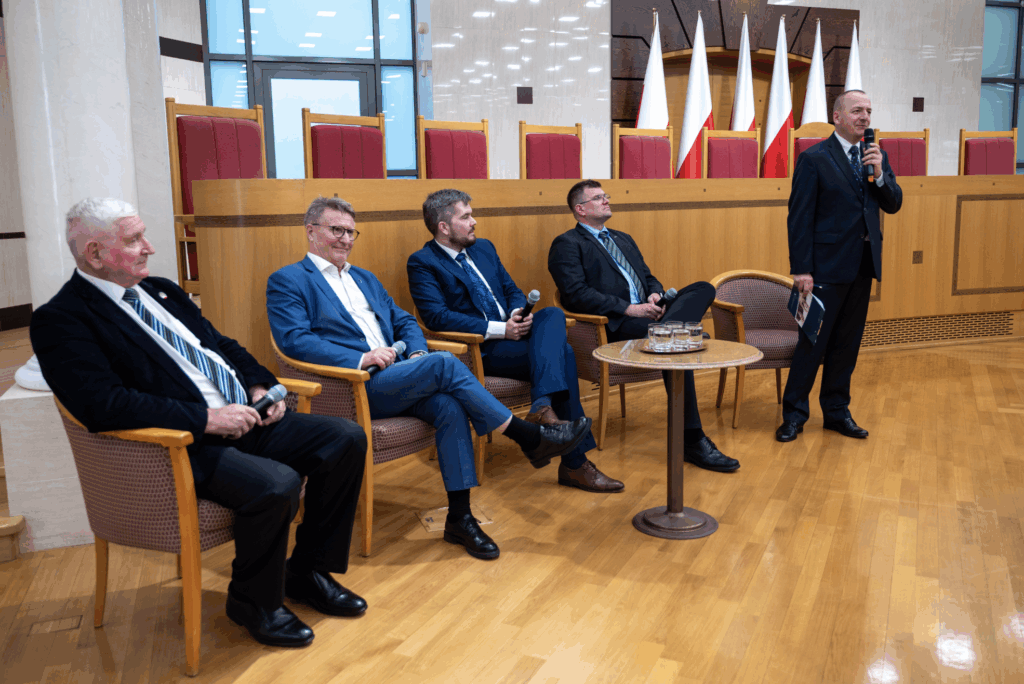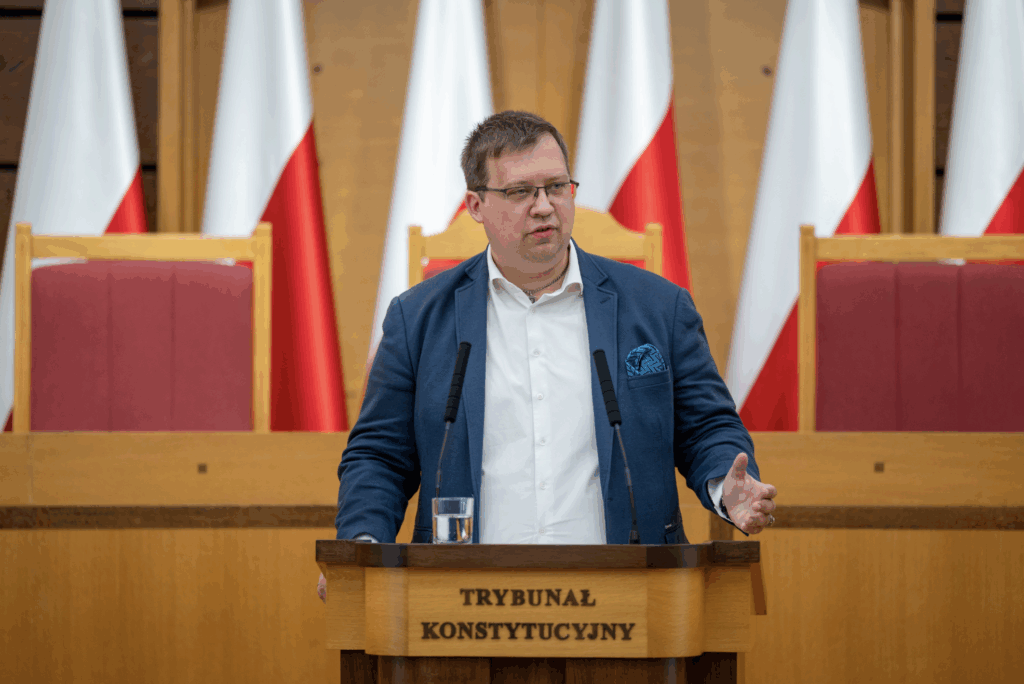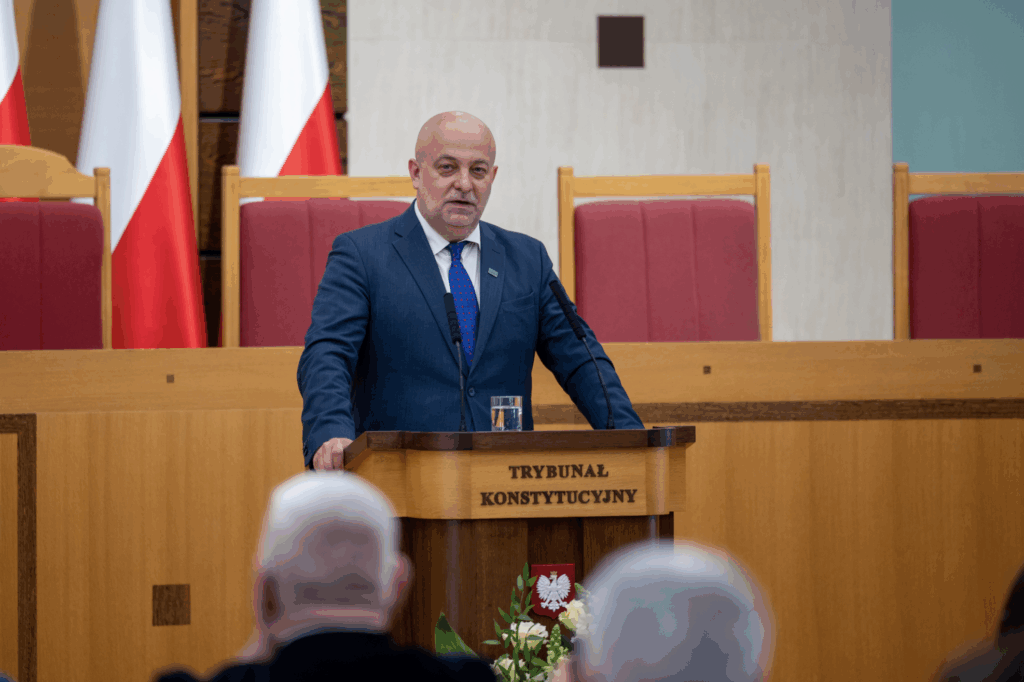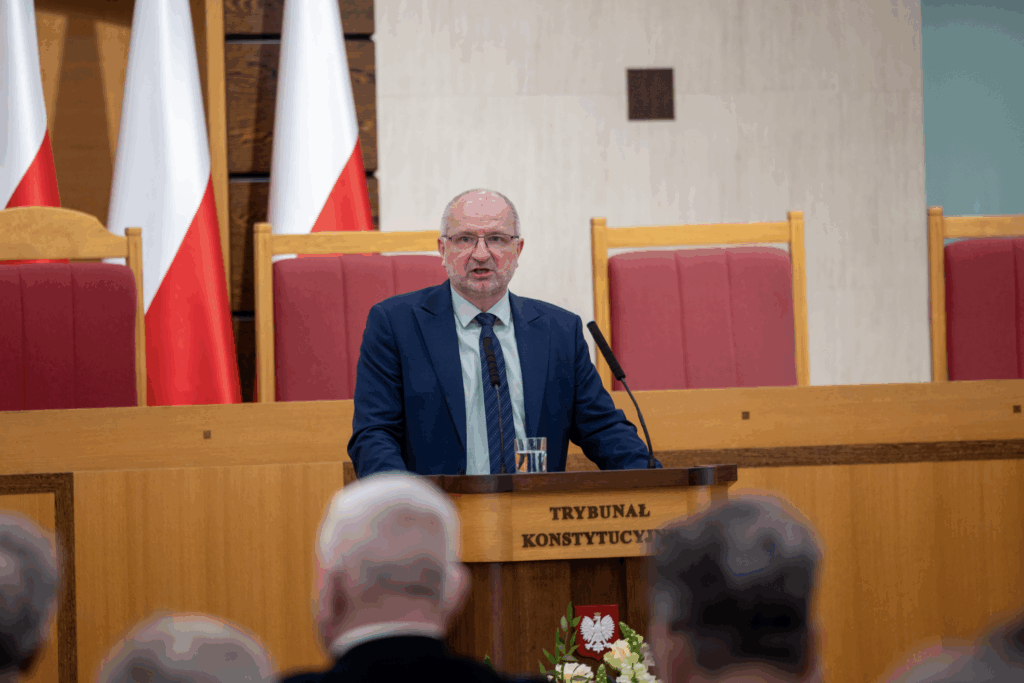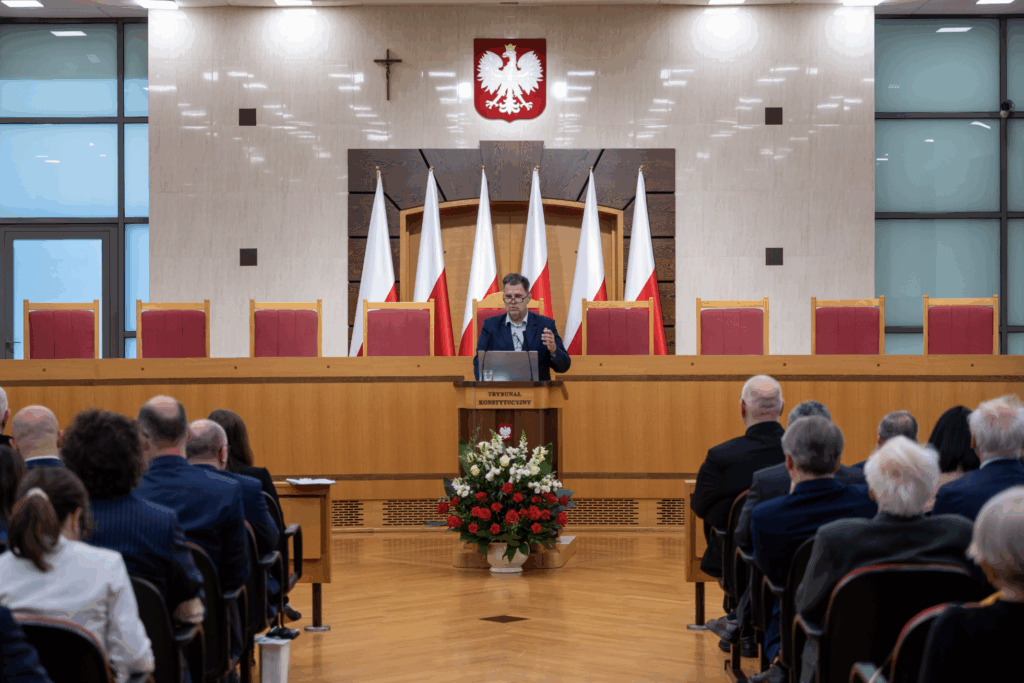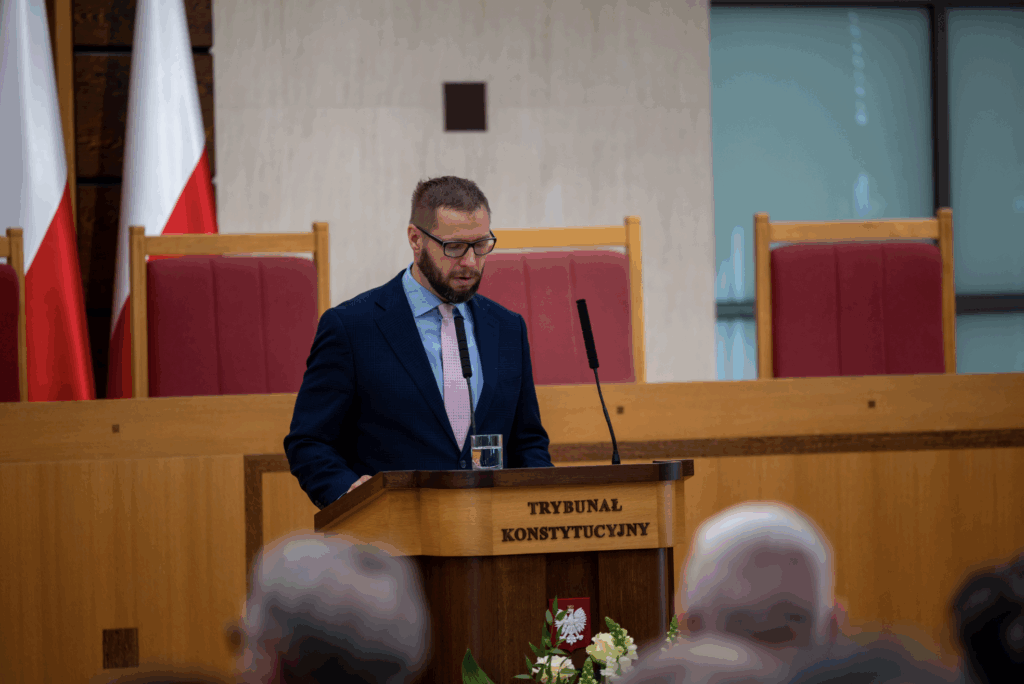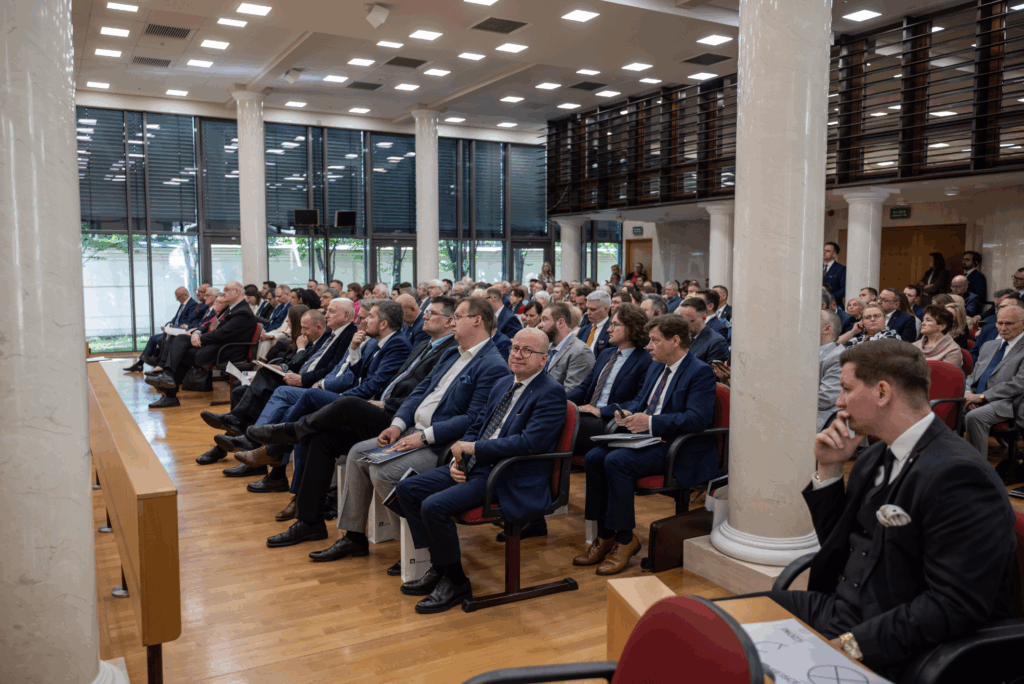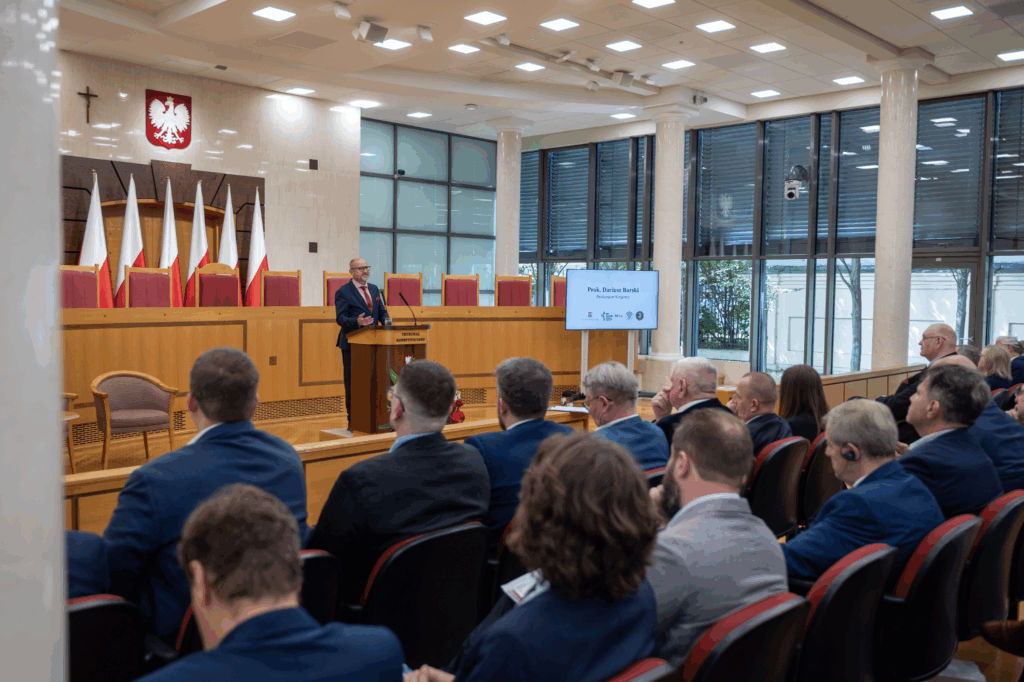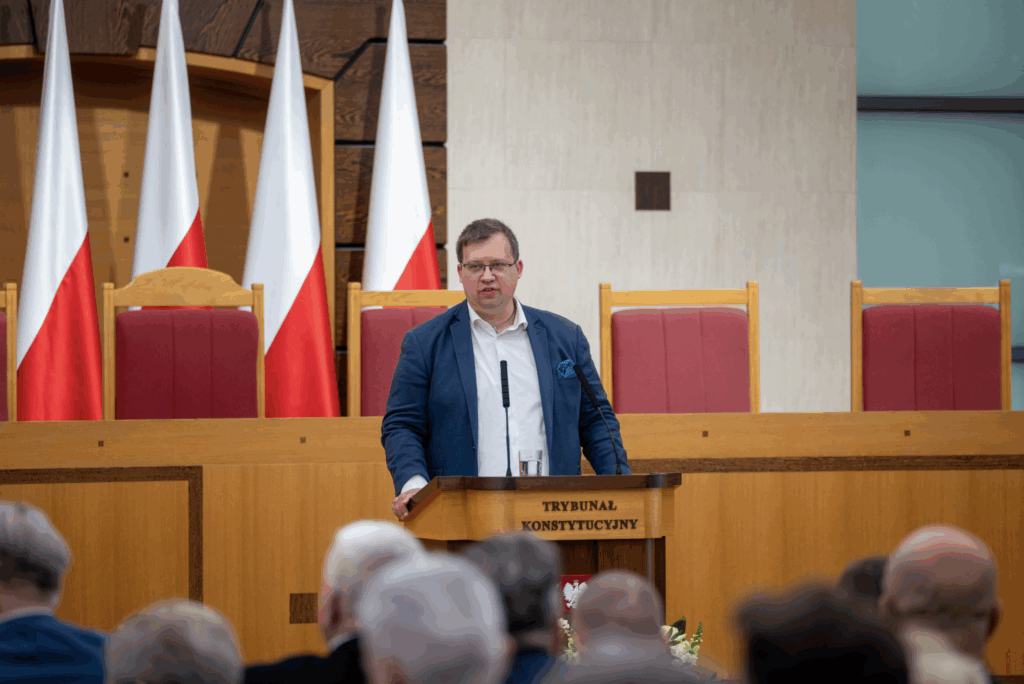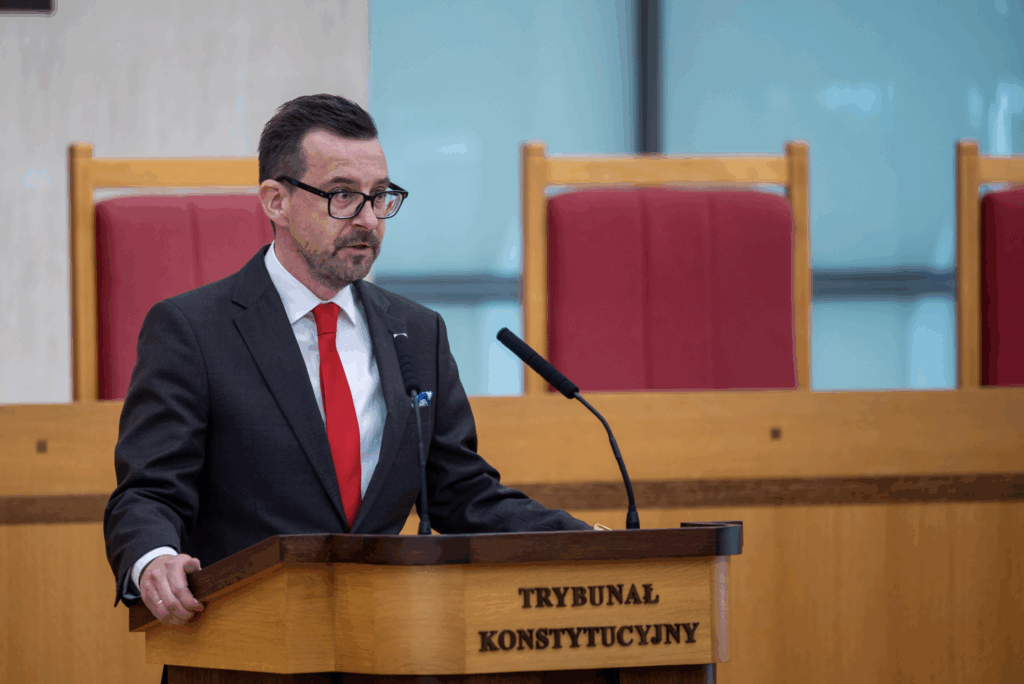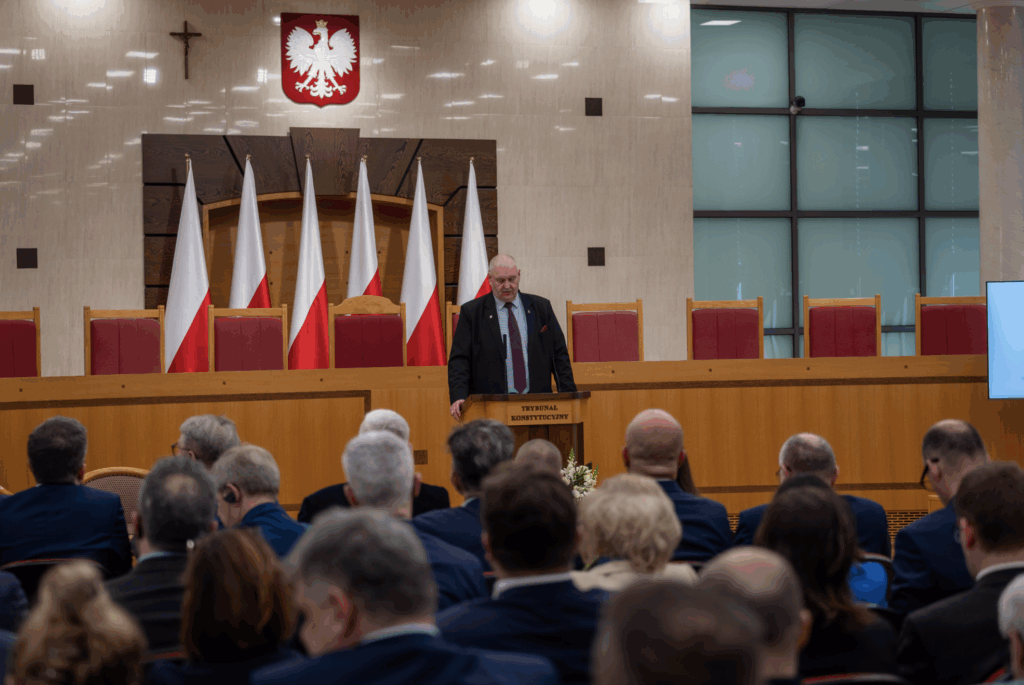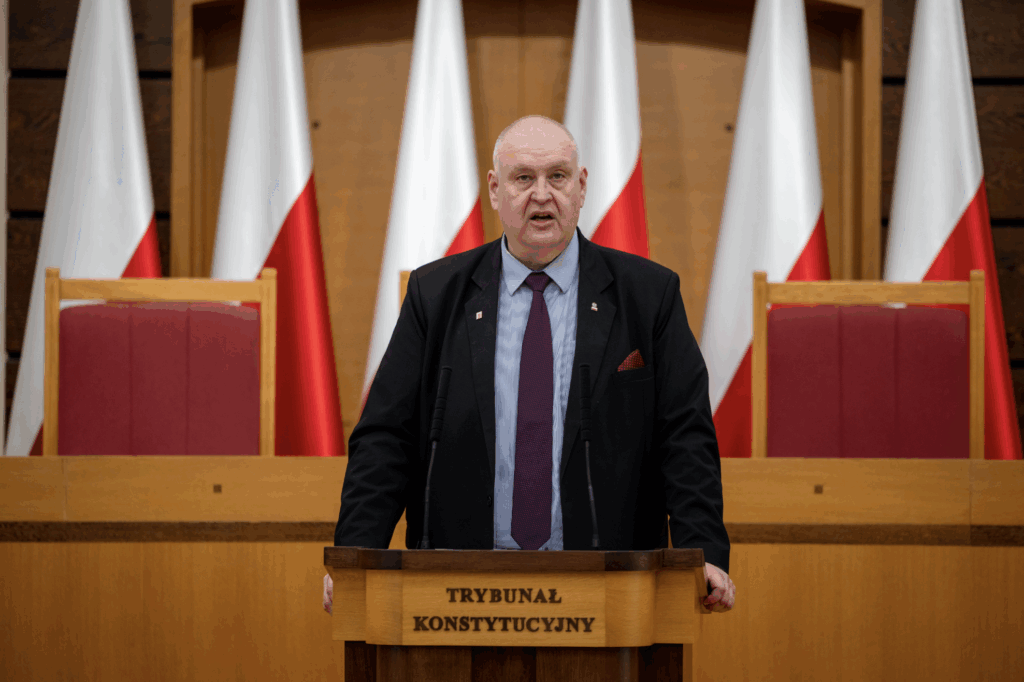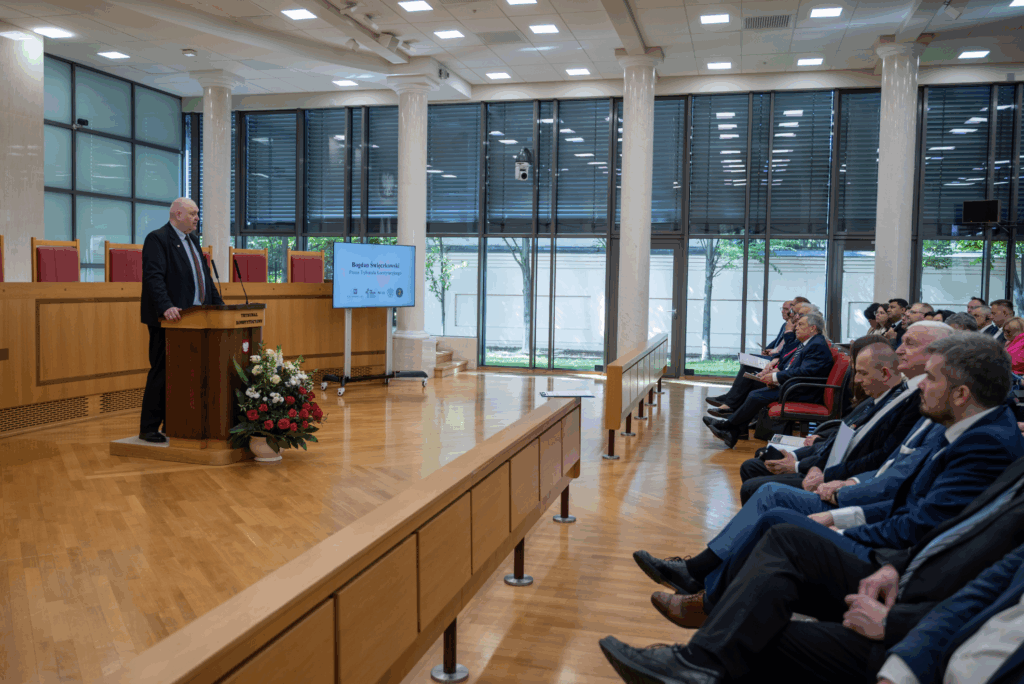MAIN POINTS
1
An international congress, “Lawyers for the Rule of Law,” organized by the Ordo Iuris Institute and other legal associations, took place at the Constitutional Tribunal
2
During the event, issues concerning the rule of law in Poland and in the European Union, instances of its violation, and the situation in the Polish judiciary were discussed, including in the context of the country’s presidential election.
3
During the congress, among those who spoke were President of the Constitutional Tribunal Bogdan Święczkowski, National Prosecutor Dariusz Barski, and Law and Justice MP Bartłomiej Wróblewski. Also appearing were guests from the USA, Hungary, and Estonia

The event at the Constitutional Tribunal was organized by the Ordo Iuris Institute, the Independent Association of Prosecutors “Ad Vocem,” and the National Association of Judges “Judges of the Republic of Poland.” The congress was held under the patronage of the First President of the Supreme Court, Małgorzata Manowska, and the National Council of the Judiciary (Poland’s Supreme Court is its court of cassation and is not to be mistaken with the Constitutional Tribunal).
The speakers’ remarks mainly concerned attacks on the rule of law committed by Donald Tusk’s government and international organizations.
The first to speak was the President of the Constitutional Tribunal, Bogdan Święczkowski. He pointed out, among other things, attempts by European Union institutions to infringe on Poland’s sovereignty.
“Today, more than at any time since 1989, we see that the dispute over the rule of law has become part of political struggle. We are also seeing attempts to impose standards on Poland and other EU countries that have no basis in the treaties. This manifests itself in pressure from international institutions and interference in the judiciary of member states, and even in attempts to influence electoral processes,” he emphasized.
A letter from the Chair of the National Council of the Judiciary (KRS), Dagmara Pawełczyk-Woicka, that was read during the congress, hit a similar tone.
“Applying the case law of the Court of Justice of the European Union without waiting for statutory amendments blurs the line between interpretation and lawmaking, which undermines the stability of the legal system and the safety of citizens. Such a state resembles a ‘den of thieves,’ in which the law becomes an instrument of arbitrary decisions rather than the foundation of social order,” the KRS chairwoman noted.
National Prosecutor Dariusz Barski, who has been barred from exercising his function by Poland’s Minister for Justice since January 2024, drew attention to the consequences of the authorities breaking the law.
“Ignoring the Constitution and the principles of the separation of powers among constitutional bodies in pursuit of short-term political goals leads to legal anarchy. The only way to fix this is for the executive branch to return to acting in accordance with the letter of the law,” he emphasized.
In turn, Dr. Łukasz Bernaciński, a member of the board at the Ordo Iuris Institute and the director of its department of studies and analyses, spoke about the essence and purpose of the rule of law, also from a historical perspective.
“We have a very long tradition of the rule of law in Poland, dating back to at least the 14th century. However, we lacked strong traditions in the judiciary related to the principle of the rule of law, owing to our specific history, including, among other things, the long period under foreign occupation, the lawyer noted.
Next, Judge Łukasz Piebiak presented the principles on which judicial reform in Poland should be based.
“The current structure of the judiciary is anachronistic and serves no purpose. However, a two-tier system, managed in a managerial and professional manner, would ensure that all of us, as citizens, receive swift and sound case decisions,” emphasized the president of Lawyers for Poland.
Meanwhile, Judge Zygmunt Drożdżejko raised the issue of judicial independence.
“Currently, we are dealing with ongoing interference with judicial independence. Proposals have emerged that directly destroy this principle by attempting to abolish its fundamental guarantee, namely the principle of judicial irremovability,” said the president of Sędziów RP.
Professor Istvan Stumpf, a former member of Hungary’s Constitutional Court, drew attention to the destructive actions of EU institutions.
“The EU’s current approach does not help build unity but rather creates more divisions and a lack of trust. Every election becomes a battleground, and every oversight becomes a weapon. Europe needs to return to democratic balance,” said the Prof. Stumpf, who is currently Hungary’s government commissioner for universities.
Dr. Bartłomiej Wróblewski, MP, in turn, addressed the issue of the Constitution.
“A new Constitution should be deeply rooted in the Polish constitutional tradition, the most characteristic features of which are, on the one hand, an attachment to the idea of order and, on the other, to freedom. It should include universal themes, in particular the protection of human dignity and life,” the politician emphasized.
Also taking the floor was Mike Calamus from Estonia, a member of the Board of Konservatiivne Eesti and a recipient of the “Fidelis Legibus” medal awarded by the “Lawyers for Poland” Association. He compared the Estonian experience with the political situation in Poland.
“If the liberals win [the presidential election] in Poland, we’ll start down the same road as Estonia; the elections will be stolen. That is why it is so important to watch for any attempts to interfere in the elections and to report any such attempts, he said.
One of the speakers was also Judge Piotr Schab, the legitimate Disciplinary Officer for Judges of the Common Courts (whom Donald Tusk’s Justice Minister Adam Bodnar has also blocked from exerting his function using unlawful means). He drew attention to the abuses that were occurring in the courts.
“The authorities wanted to intimidate us with their actions, but they simply failed. But I am convinced that this government will make another attempt, provided it has the political means to do so,” the judge stressed.
The event concluded with the President of the Constitutional Tribunal signing a declaration of cooperation with civil society organizations. This document seeks to restore the rule of law in Poland.
“Through our actions, we seek to restore trust in the justice system, to restore citizens’ access to effective and impartial courts and the prosecution service, and to ensure that our service plays its proper role in the performance of its duties, with particular regard to judicial independence, the principles of professional ethics, dignity, and integrity in enforcing the laws of the Republic of Poland established to safeguard social order and citizens’ rights and freedoms,” the declaration emphasized.
“In the face of an ever-deepening constitutional crisis, which includes the executive and legislative branches’ challenge to the principles of judicial independence and the independence of judges, as well as the principles of legality and the rule of law, which form the foundation of a democratic state governed by the rule of law, we oppose any unlawful actions taken against the state’s constitutional bodies,” the signatories further stated.
“We call for cooperation among all representatives of the legal community who wish to serve a homeland governed by the rule of law, in which equality before the law, justice, and human dignity are afforded appropriate protection. It is time to express firm support for the objective constitutional order. It is time to categorically reject the legal relativism evident in the actions of the executive branch,” it was noted.
Full translation of the declaration of the Constitutional Tribunal, the Independent Association of Prosecutors Ad Vocem, Lawyers for Poland, the National Association of Judges “Judges of the Republic of Poland,” and the Ordo Iuris Institute:
DECLARATION OF COOPERATION
for maintaining the rule of law in Poland
signed in Warsaw on May 30, 2025.
“Recalling the words of the judicial oath and the oaths taken by members of the legal professions, we pledge faithful service to the Republic of Poland, work toward strengthening our Homeland’s legal order and the mechanisms that protect freedoms and human and civil rights.
Through our actions, we seek to restore trust in the justice system, to restore citizens’ access to effective and impartial courts and the prosecution service, and to ensure that our service plays its proper role in the performance of its duties, with particular regard to judicial independence, the principles of professional ethics, dignity, and integrity in enforcing the laws of the Republic of Poland established to safeguard social order and citizens’ rights and freedoms.
We are all united by our concern for the Homeland, which, pursuant to Article 1 of the Constitution of the Republic of Poland, is the common good of all citizens.
In light of instances of blatant disregard for the principles on which the constitutional order of the Republic of Poland rests, we shall recall that, under the current Constitution, the rule of law requires observance of the principles of a democratic state governed by the rule of law, of the hierarchy of legal acts, and for all state authorities to act solely within the limits of and on the basis of the law.
In the face of an ever-deepening constitutional crisis, which includes the executive and legislative branches’ challenge to the principles of judicial independence and the independence of judges, as well as the principles of legality and the rule of law, which form the foundation of a democratic state governed by the rule of law, we oppose any unlawful actions taken against the state’s constitutional bodies.
The institutions and organizations we represent commit to close cooperation to restore a stable judiciary and to ensure respect for the Constitution of the Republic of Poland, the system of sources of law, and the legal principles that constitute the civilizational heritage of the European and Christian tradition.
The goal of our cooperation is to stop the devastation of Poland’s legal system. As representatives of the legal professions—including judges, prosecutors, attorneys, legal advisers, bailiffs, and notaries—and of the academic community, we declare that we will oppose any acts that violate the Constitution and commit to taking the actions necessary to restore the rule of law.
We call for cooperation among all representatives of the legal community who wish to serve a homeland governed by the rule of law, in which equality before the law, justice, and human dignity are afforded appropriate protection. It is time to express firm support for the objective constitutional order. It is time to categorically reject legal relativism manifested in the actions of the executive branch.
In keeping with the Preamble to the Constitution of the Republic of Poland and drawing on the best traditions of the First and Second Polish Republics, we are obliged to pass on to future generations everything of value from the Polish state’s heritage that is more than a thousand years old. We are convinced that the time has come for the lawyers of the Republic of Poland to bear witness to the highest ideals, traditions, and principles upon which the constitutional and legal edifice of our Homeland was built.”
*****
Read more about Poland’s current rule-of-law crisis in our Rule of Law Observer.
